Members code
Do's & don'ts
You should:
• cooperate with others
• be friendly
• listen to others
• be helpful
• have good manners
• treat everyone with respect
• take responsibility for your own behaviour
• talk to a staff member/volunteer about anything that worries or concerns you
• follow this code of behaviour and other rules (including the law)
• join in and have fun!
You shouldn’t:
• be disrespectful to anyone else
• bully other people (online or offline)
• behave in a way that could be intimidating
• be abusive towards anyone
• carry any illegal items with you including weapons or illegal substances
• Vape or smoke
What happens if I decide not to follow the code of behaviour?
Minor or first-time incident
If you behave in a way that doesn’t follow our behaviour code, our staff or volunteers will remind you about it and ask you to comply with it. They will give you an opportunity to change your behaviour. This gives you the chance to think and to plan how you could behave differently, with support from staff and/or volunteers.
Formal warning
If you continue not to follow the code of behaviour after your first reminder, or if your behaviour is more serious, you will be given a formal warning by the person running your activity. They will make a record about what happened and inform your parents or carers if this is appropriate. They will also talk with you about what happened and agree what support you need to improve your behaviour in the future. We may also decide that a sanction is appropriate such as restricting you from taking part in some activities.
Final warning
If the support we have put in place isn’t helping you to change your behaviour, we may need to give you a final warning. Again, this will be recorded, and we’ll inform your parents or carers as appropriate. At this point, we may need to talk with you and your parents or carers about other services that might be more able to give you the support you need. Child protection procedures If any member of staff or volunteer becomes concerned that your behaviour suggests you may need protection or that you may present a risk of harm to other children and young people, they will follow our child protection procedures. This may involve making a referral to the local authority. If child protection procedures are necessary, we will talk this through with you and your parents as soon as possible, unless doing so would put you in danger or interfere with a police investigation.
Role of parents & carers
We see parents and carers as valuable partners in promoting positive behaviour and will involve them as appropriate. We will always inform and involve your parents or carers if you receive a formal warning about your behaviour, unless doing so would put you in danger.

